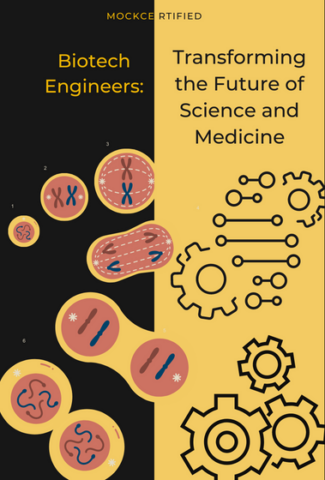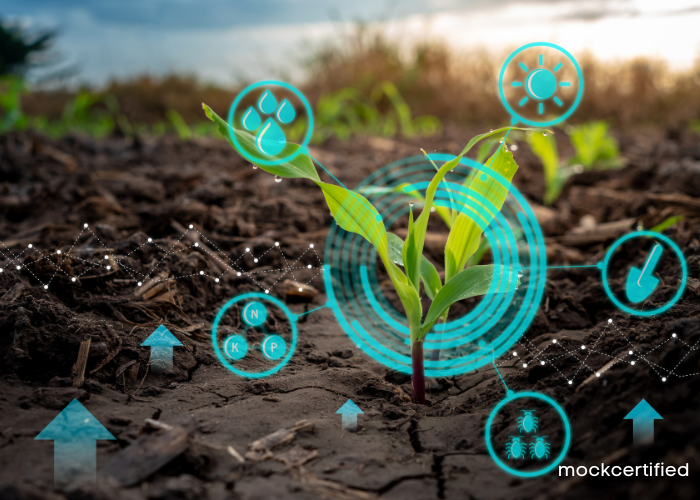
Table of Contents
Introduction
Biotechnology, a science that combines biology and technology, is altering sectors ranging from healthcare to agriculture.
At the forefront of this innovative field are biotech engineers. These skilled professionals combine their expertise in biology, engineering, and other scientific disciplines to develop groundbreaking solutions that improve human health, enhance food production, and advance environmental sustainability.
We will be delving into the fascinating world of biotech engineers, exploring their roles, contributions, and the incredible impact they have on society.
What is Biotech Engineering?
Biotech engineering is a multidisciplinary discipline that applies engineering ideas to biological systems.
It entails designing, developing, and implementing technologies and methods to address complex biological concerns.
Biotech engineers apply their understanding of genetics, biochemistry, microbiology, and engineering to create novel solutions to urgent problems in a variety of businesses.
The Role of Biotech Engineers
Biotech engineers are critical in bridging the biology-engineering divide. They are responsible for designing and optimizing processes, equipment, and systems to manipulate biological materials and organisms.
Their expertise allows them to develop new pharmaceuticals, design medical devices, improve agricultural practices, and contribute to environmental conservation efforts.
Biotech Engineering in Healthcare

Enhancing Drug Discovery and Development
One of the significant contributions of biotech engineers in healthcare is in the area of drug discovery and development.
They employ their engineering skills to develop advanced technologies and methodologies that accelerate the drug discovery process.
This includes the design of high-throughput screening techniques, lab-on-a-chip devices, and computer simulations to identify potential drug candidates and optimize their efficacy.
Advancing Precision Medicine
Biotech engineers also contribute to the field of precision medicine, which aims to customize medical treatments based on an individual’s unique genetic makeup.
Through the use of genetic engineering techniques and bioinformatics, they help analyze vast amounts of genomic data to identify specific disease markers and develop personalized therapeutic interventions.
Pioneering Regenerative Medicine
Regenerative medicine holds the promise of replacing damaged tissues and organs with lab-grown alternatives.
Biotech engineers are at the forefront of this cutting-edge field, utilizing tissue engineering, stem cell research, and biomaterials to develop innovative approaches for organ transplantation and tissue regeneration.
Biotech Engineering in Agriculture

Improving Crop Yield and Quality
Biotech engineers contribute significantly to agricultural advancements by developing genetically modified crops that possess desirable traits, such as enhanced resistance to pests, diseases, and adverse environmental conditions.
By harnessing genetic engineering techniques, they can improve crop yield and quality, leading to increased food production and enhanced nutritional value.
Developing Sustainable Farming Practices
In an era where environmental sustainability is of paramount importance, biotech engineers are actively involved in developing sustainable farming practices.
They work towards reducing the reliance on chemical fertilizers and pesticides by designing biological alternatives, such as biopesticides and biofertilizers.
Additionally, they contribute to the development of precision agriculture techniques, which optimize resource utilization and minimize environmental impact.
Enhancing Food Safety
Biotech engineers also play a crucial role in ensuring food safety. They develop innovative technologies for rapid and accurate detection of foodborne pathogens, toxins, and contaminants.
By implementing these advancements in food processing and quality control, they help minimize the risk of foodborne illnesses and maintain high standards of food safety.
Biotech Engineering in Environmental Conservation
Bioremediation: Cleaning up Pollution
Biotech engineers are at the forefront of tackling environmental pollution through the application of bioremediation techniques.
They utilize genetically engineered microorganisms and enzymes to degrade harmful pollutants in soil, water, and air, effectively cleaning up contaminated sites.
Bioremediation offers a sustainable and cost-effective solution to restore ecosystems affected by industrial activities and accidents.
Biofuels: Renewable Energy Sources
The quest for renewable energy sources has led biotech engineers to explore biofuels as an alternative to fossil fuels.
They develop technologies to convert biomass, such as agricultural waste and algae, into biofuels that can be used for transportation and energy generation.
By harnessing the power of biotechnology, they contribute to reducing greenhouse gas emissions and mitigating the impact of climate change.
Conservation of Endangered Species
Biotech engineers also contribute to the conservation of endangered species through innovative approaches.
They utilize genetic engineering techniques, such as cloning and assisted reproduction, to preserve genetic diversity and prevent the extinction of endangered species.
Additionally, they employ biotechnology tools for population monitoring, disease management, and habitat restoration, ensuring the long-term survival of vulnerable ecosystems.
Ethical Considerations in Biotech Engineering
As biotech engineering continues to advance, ethical considerations become paramount.
Biotech engineers must navigate complex ethical dilemmas surrounding gene editing, genetic modification, and privacy concerns associated with genomic data.
Responsible and transparent practices, along with rigorous ethical frameworks, are essential to ensure the ethical and safe application of biotechnology for the benefit of society.
The Future of Biotech Engineering

The future of biotech engineering holds immense potential. Advancements in areas such as gene editing, synthetic biology, and nanotechnology are expected to drive transformative changes in healthcare, agriculture, and environmental conservation.
Biotech engineers will continue to innovate and push the boundaries of science and technology to address global challenges, improve human well-being, and create a more sustainable future.
Conclusion
Biotech engineers are instrumental in shaping the future of science and medicine.
Their multidisciplinary expertise, coupled with a deep understanding of biology and engineering, enables them to develop groundbreaking solutions across various industries.
From improving healthcare outcomes to enhancing agricultural practices and conserving the environment, biotech engineers are at the forefront of innovation.
As we move forward, it is crucial to recognize and support the vital contributions of these skilled professionals in advancing human knowledge and improving the quality of life for all.
If you have found this blog insightful, do check out more here.



